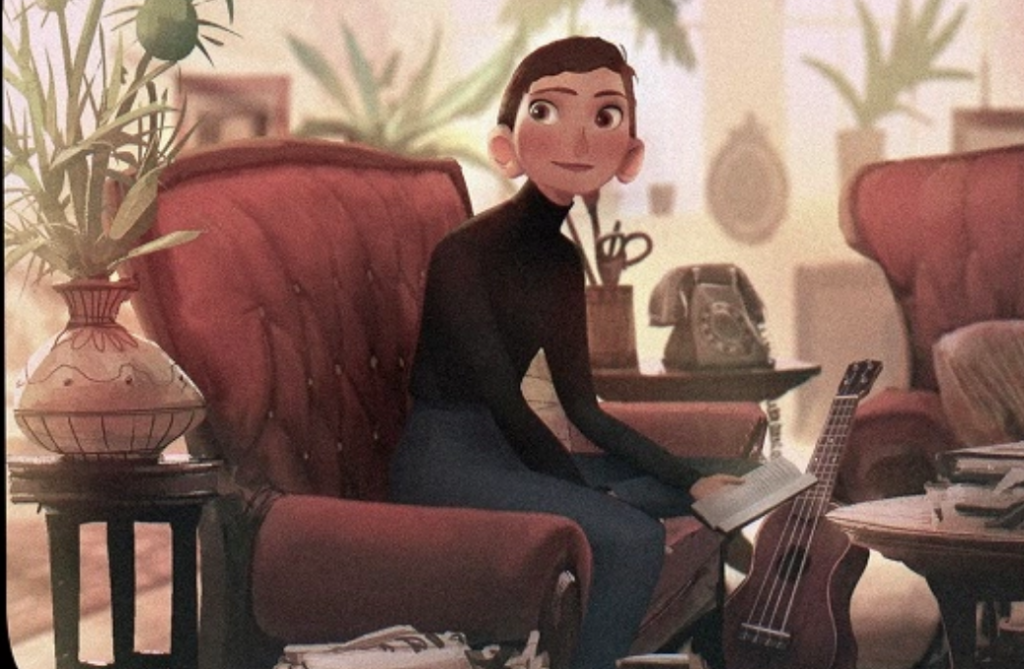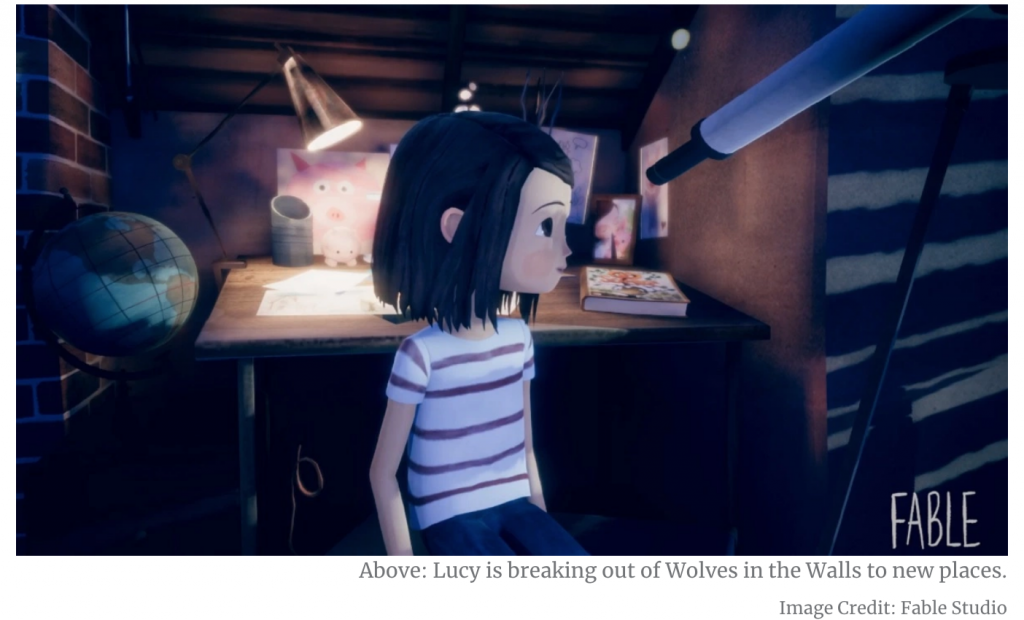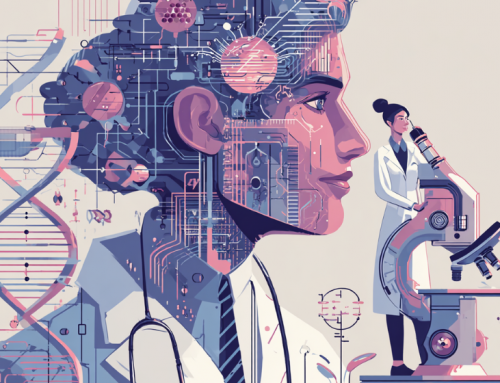
Fable Studios introduces ‘virtual beings’ Charlie and Bret.
Fable Studios Expects Interactive Conversational Characters to Be Huge Market Hit
Say hello To Charlie and Beck. One is an athletic type, the other not so much. Both are virtual. Both can become friends with you, if you like.
People will be able to hold conversations with Beck and Charlie, as they have been designed with AI engines supporting them. Fable Studio has blended human-written dialogue with AI responses available through GPT3 technology, a language model that is in its infancy. But the conversations can be very different because they’re adults, Saatchi told venturebeat.com.
Fable Studio’s virtual pals will be able to hold conversations as if they were real people. The new characters combine storytelling with AI, an enticing combination for virtual beings they expect to become popular as people seek companionship and entertainment online. It’s possible these two avatars will be the first of what will be a worldwide movement within five years.
CEO Edward Saatchi believes that “virtual beings” will become wildly popular. He organizes the Virtual Beings Summit, and this summer he noted that virtual beings companies — from Genies to AI Foundation — have raised more than $320 million.
The Surge of Virtual Beings
Fable Studio started as a virtual reality entertainment company, and it won an Emmy Award for its Wolves in the Walls virtual reality project. But the company has pivoted beyond VR and focused on virtual beings, such as Lucy, the 8-year-old girl who was the studio’s first next-generation AI character. Now Fable is pulling Lucy out of VR and letting people talk to her via the web, and the company has a 7,000-person waitlist after launching Lucy in alpha testing last month.

Such characters are stepping stones to the metaverse, the universe of virtual worlds that are all interconnected, like in novels such as “Snow Crash” and “Ready Player One.” VentureBeat is hosting a conference on the subject, GamesBeat: Into the Metaverse on January 27, featuring Saatchi as a speaker.
Lucy is being joined by Charlie and Beck. You can sign up to make friends with them at fable-studio.com. The characters are powered by the Fable Wizard, an AI tool to bring characters to life through visuals, dialogue, voice, and animation.
Saatchi said that in the six weeks since launching Lucy’s alpha, the company has received interest from intellectual property companies valued at $7 billion to use the Wizard to create virtual beings from their characters. It has a deal in the works to co-create a virtual being with a well-known influencer.
“We’re really excited to introduce these characters,” Fable creative director Jessica Shamash said in an interview. “We’ve been working on them for quite some time now. And we have actually a few more characters, but these are the first that we wanted to introduce. We wanted to build these very intentional characters that people are inspired by and look up to, people that are characters that our audiences kind of want to be friends with, and want to interact with. Charlie is this timeless character, this timeless French poet, who is turning her poetry into music. She embodies this Audrey Hepburn, Amélie, and even Bob Dylan in some ways.”
The writer of the article, Dean Takahashi, goes deeper into explaining the background for the avatars Charlie and Beck. Their history has been created to make them seem approachable as friends, going far beyond the casual interaction with AI-driven voice response tools like Alexa, for instance.
“In five years, we think every Gen Z person will have an AI virtual being as that close friend,” he said. “Imagine the scene at home: The parents are sitting down with food at the table, and the kid is texting and gossiping. And the parents are wondering what you’re doing. It’s the same way kids act with radio or TV or video games.”
Saatchi said Fable is being careful about how many people can have conversations with characters like Lucy. They’re monitoring to see if people are testing to see how real the character is. While one boy teased Lucy a lot, for the most part the humans have been behaving well during their interactions.
“We haven’t had anything negative,” Saatchi said. “If you’re doing anything inappropriate, Lucy won’t respond or she might disconnect. But this is such kind of powerful technology, and has such powerful psychological implications for people that we need to build up trust.”
This is a whole new field of societal interactions that AI is creating from scratch.
read more at venturebeat.com







Leave A Comment